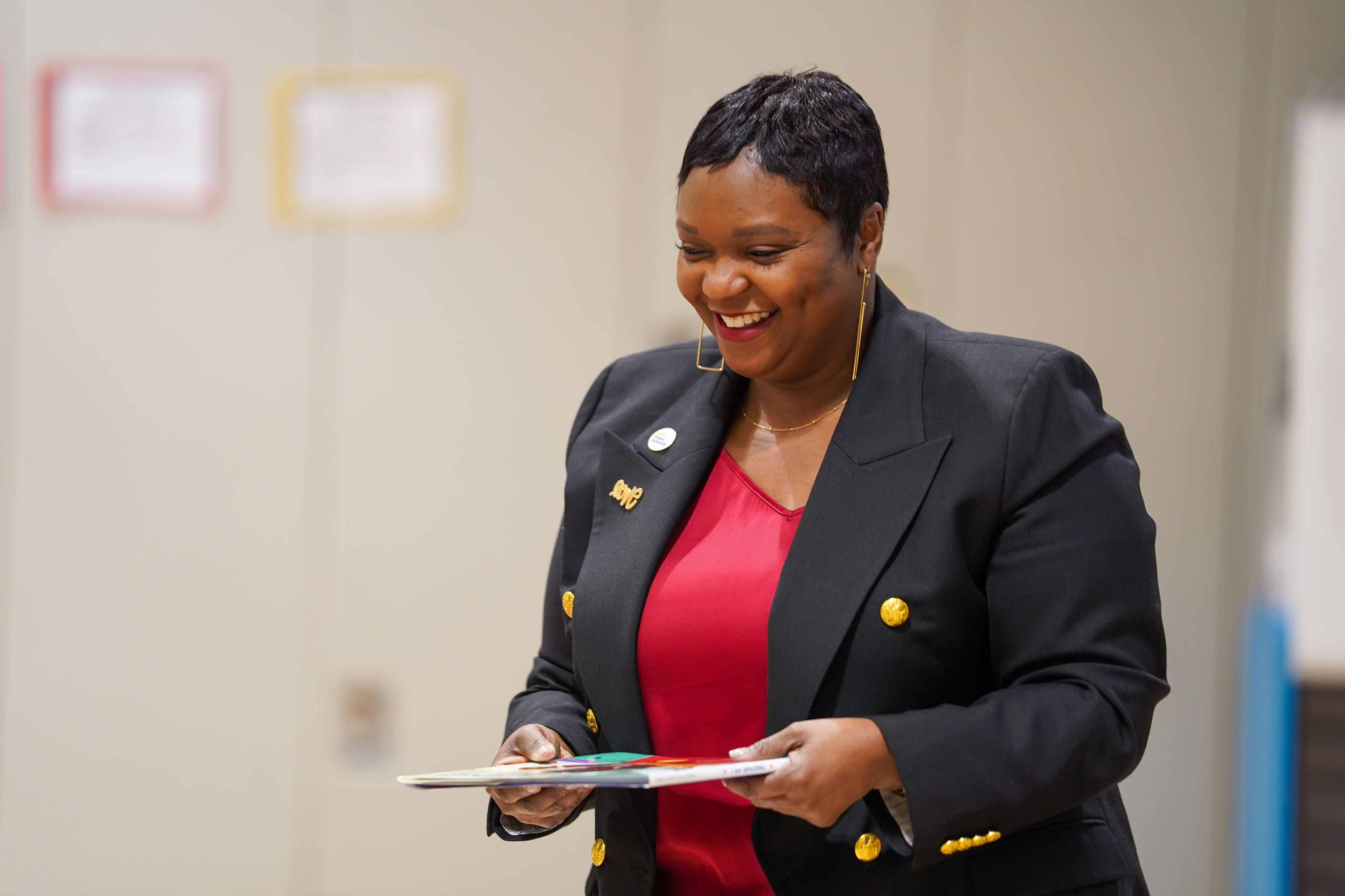In an unusual staffing shuffle, two high-ranking New York City Education Department officials are effectively swapping positions — with one returning to the public school system just months after leaving for a new job.
Melissa Aviles-Ramos, who left her role as chief of staff for schools Chancellor David Banks in February to start a job as a college administrator, will return to the Education Department to take over as deputy chancellor for family and community engagement and external affairs, officials announced Monday.
She will replace Kenita Lloyd, a long-time colleague of the chancellor’s, dating back to his days running a network of all-boys public schools. Lloyd was named Banks’ chief of staff Friday.
In press releases announcing the changes, Banks and Mayor Eric Adams praised both Lloyd and Aviles-Ramos and emphasized the importance of both positions.
Banks framed Lloyd’s move as a promotion, saying in a statement Friday that he was “elevating” her to the chief of staff role because “her deep knowledge of how this system and our communities work will provide my leadership team with the guidance and support it needs to pursue our critical priorities.”
Lloyd will be the fourth person to serve as chief of staff for Banks, who took over as chancellor in January 2022.
In Monday’s announcement about Aviles-Ramos’ return to the Education Department, Banks said her “extensive experience and dedication to advocating for students and families make her exceptionally qualified for this role.”
The press release highlighted Aviles-Ramos’ experience as a teacher, school leader, deputy superintendent, and acting superintendent, but left out her most recent and highest-ranking position as chief of staff.
Aviles-Ramos’s salary in fiscal year 2023, before she became chief of staff, was listed as $204,000, while Lloyd made $240,000 that year, according to payroll records posted on SeeThroughNY.
Both Lloyd and Aviles-Ramos took on some of the Education Department’s highest-profile challenges in their prior roles.
Lloyd oversaw the family and community engagement office, or FACE, which has dealt with a surge in conflicts among elected parent leaders over transgender students, the Israel-Hamas war, and other charged political issues. Last month, the department took the rare step of removing two parent leaders for allegedly violating the city’s code of conduct.
Even before those parent leader dustups, FACE has been roiled by internal strife over its handling of the most recent Community Education Council elections.
Aviles-Ramos, meanwhile, took charge of the Education Department’s efforts to support tens of thousands of newly arrived migrant students – an initiative officials called Project Open Arms. That initiative is no longer under the purview of the chief of staff, according to an Education Department spokesperson.
Banks has made several changes recently to the leadership structure of the Education Department. In March, he dissolved the Division of Teaching and Learning, a department that had roughly 2,000 employees and oversaw major initiatives like the NYC Reads elementary school curriculum mandate. Last month, he announced a new deputy chancellor to oversee special education and multilingual learners.
Michael Elsen-Rooney is a reporter for Chalkbeat New York, covering NYC public schools. Contact Michael at melsen-rooney@chalkbeat.org.






